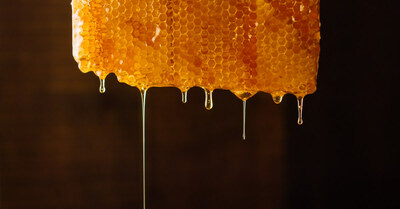Don't fall for unhealthy filler ingredients and substitutes in these favorite foods that can be deceptive
CHANHASSEN, Minn., March 6, 2024 /PRNewswire/ -- The landscape of food is complex – and it's only getting worse. Ensuring you're buying genuine, healthy ingredients is increasingly challenging because of misleading labels on products that mask bad items in otherwise healthy-looking choices at the grocery store.

To help everyone recognize the good from the bad, Life Time (NYSE: LTH), offers five "healthy" food favorites that can sneakily hide harmful fillers and cheap, unhealthy substitutes.
- Coffee: Beloved for its energy perks and antioxidant health benefits, coffee grounds can be mixed with fillers, including wheat, corn, rye, barley, soy beans, and even sticks (and more). For the best authenticity and freshness, purchase only whole beans and grind them at home. By avoiding pre-ground coffee, you can eliminate the potential for these imposters and enjoy a fresher-tasting brew.
- Olive Oil: Known as one of the healthiest cooking oils, olive oil is susceptible to food fraud by being diluted with cheaper oils, including vegetable and canola oils, and other inferior ingredients. To ensure you receive only the purest and healthiest options, purchase authentic olive oil from reputable stores that specialize in the product, or look for California Olive Oil Council certification seals to verify authenticity. This label ensures that you're buying California-grown 100% extra virgin oil.
- Honey: Often revered for its antioxidant properties, honey is one of the primary products commonly fraught with imitations adulterated with corn syrup, sugar or other substances and fillers. You can ensure the honey you're buying is legit by purchasing it directly from beekeepers or local farmers' markets, which has the added benefit of supporting producers in your area. Many grocery stories also carry local honey brands, which can be quality options. And remember that "organic" does not necessarily guarantee unadulterated.
- Maple Syrup: Cherished for its natural sweetness, maple syrup – like honey – is one of the most common categories full of imposters. To avoid deception, seek syrup with just ONE ingredient: pure maple syrup. Avoid all others loaded with corn syrup, other inferior syrups and sweeteners, and artificial flavors and colors.
- Parmesan Cheese: Prized for its rich flavor, Parmesan cheese is frequently adulterated with cheaper cheeses and additives like cellulose (wood pulp or cotton lint), potato starch and palm oil. Aim to buy blocks of Parmigiano-Reggiano cheese to shred yourself, ensuring they meet Italian standards with the name stamped in pin dots on the rind or the label "Parmigiano-Reggiano." If you need pre-grated Parmesan cheese, pick a product that's grated and labeled at the grocery store versus pre-grated cheese off the shelf.
"Verified real, whole food is more likely to have the naturally bioavailable nutrient forms and complementary polyphenols and micronutrients to most effectively nourish your body," said Samantha McKinney, Life Time's National Program Manager for Nutrition and Metabolism. "Read labels to ensure you're purchasing the best available options and learn more about the foods you buy to avoid wasting your money on inferior or, worse, items that are just plain unhealthy."
More information on foods and filler ingredients can be found in Life Time's Experience Life magazine, featuring insight from Larry Olmsted, author of Real Food/Fake Food: Why You Don't Know What You're Eating and What You Can Do About It.
To help its members, Life Time offers nutrition coaching with certified professionals across its network of more than 170 athletic country clubs along with programs like D.TOX and 1-2-12 to jump start healthy nutrition habits. Learn more at lifetime.life.
Through its charitable arm, the Life Time Foundation a 501(c)(3) nonprofit, Life Time supports school food professionals in providing children the nutritious, minimally processed meals they deserve across the country. School districts have access to Life Time Foundation's free tool, Green Onion, to analyze their products for ingredients of concern based on the Ingredient Guide for Better School Food Purchasing. Green Onion helps users easily find better product alternatives and track their progress on an individualized dashboard.
About Life Time®
Life Time (NYSE: LTH) empowers people to live healthy, happy lives through its portfolio of more than 170 athletic country clubs across the United States and Canada. The Company's healthy way of life communities and ecosystem address all aspects of healthy living, healthy aging and healthy entertainment for people 90 days to 90+ years old. Supported by a team of more than 37,000 dedicated professionals, Life Time is committed to providing the best programs and experiences through its clubs, iconic athletic events and comprehensive digital platform.
![]()
![]() View original content to download multimedia:https://www.prnewswire.com/news-releases/life-time-shares-five-common-food-imposters-to-promote-healthy-choices-this-national-nutrition-month-302081702.html
View original content to download multimedia:https://www.prnewswire.com/news-releases/life-time-shares-five-common-food-imposters-to-promote-healthy-choices-this-national-nutrition-month-302081702.html
SOURCE Life Time, Inc.


